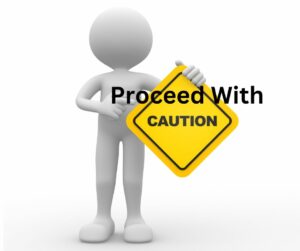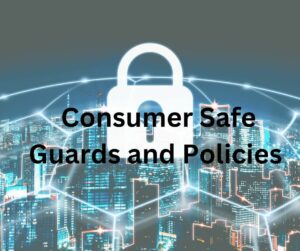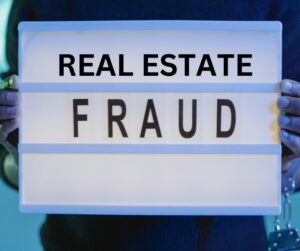Every single industry must deal with fraud. Unfortunately, it’s the world we live in. Security constantly improves to protect against common fraud, while scammers strive to stay one step ahead. Real Estate is an industry that scammers love to target. You might wonder why we deal with folks often making large purchases. It doesn’t matter if you rent, buy, or even sell. There is a scam out there.
Research, Research, Research
 Our rental market was incredibly competitive this past year, making the perfect climate for fraud. People can protect themselves, but remember, we’re here to help and protect you, even if some choose to avoid us. Please take these steps if you are trying to find that home to rent, buy, or sell without us.
Our rental market was incredibly competitive this past year, making the perfect climate for fraud. People can protect themselves, but remember, we’re here to help and protect you, even if some choose to avoid us. Please take these steps if you are trying to find that home to rent, buy, or sell without us.
1) Start your search online, but research the property you found.
*is there contact info there like a phone, email
*Is a person’s name listed?
*What about the address, and if it’s not listed, will they disclose it to you if you ask?
*If there are pictures, do a reverse image search and see what comes up
*If there is contact info like a phone or email, search for that info and see if anything comes up
*Share the listing with friends for their opinions, especially if they’re legal or real estate professionals. Listen to their thoughts and be open to what they share with you.
Common paperwork
2) If unable to visit in person, have someone you trust tour the unit on Zoom when considering a purchase or rental. You should be concerned if the person advertising the property refuses to meet you there. Other things where you should be concerned
*If requested to give a deposit to tour the property in person, you should question the legitimacy.
*If you need to complete rental paperwork before looking at the property, you should be questioning things
The only paperwork you might need to tour the unit, in person or via Zoom, includes:
*Waiver if you’re touring a construction site
*Site unseen document if looking at the property via Zoom, facetime, or Facebook Marketplace
Red Flags and Protection
 You won’t need to share your complete address. Usually, they require only your first and last name and possibly a phone number. Avoid sharing personal information for in-person or Zoom tours; having a friend present when viewing remotely is ideal.
You won’t need to share your complete address. Usually, they require only your first and last name and possibly a phone number. Avoid sharing personal information for in-person or Zoom tours; having a friend present when viewing remotely is ideal.
3) Engaging an attorney is crucial for Massachusetts’s land or real estate transactions. They safeguard you against scams and verify information. Licensed real estate agents can also assist in verifying property legitimacy. Legal assistance remains an option if you’re not buying property in Massachusetts.
4) Last-minute changes where to send money is another big red flag. Properties go under agreement quickly, but the real estate transaction isn’t immediate, and changes don’t happen overnight. For example
Payment in real estate transactions usually flows through specific channels. With a real estate agent, payments typically go to the seller’s firm representation, and you’ll be notified accordingly. You may receive advice to send money to the seller’s attorney or escrow agent when not using an agent.
Beware of sudden changes in payment instructions. If there’s a last-minute alteration, contact your agent or attorney immediately. Scammers use a deceptive technique called spoofing, where they mimic legitimate emails to mislead you. They target vulnerable individuals in the transaction.
Keep in mind that legitimate changes in payment methods don’t occur suddenly. If in doubt, verify by phone rather than blindly following email instructions. Your email may not have been compromised; the scammer exploits the transaction’s vulnerabilities. Stay vigilant and verify any unusual requests.
Safe Guards
 Numerous real estate firms implement enhanced safety measures for managing buyer and seller funds. Both parties usually sign a wire notification disclosure. Agents are advised not to share wire transfer details with clients directly. Gibson Sotheby’s mandates a wire disclosure for buyers and sellers when a wire transfer is required, with the accounting department securely delivering wire information via email.
Numerous real estate firms implement enhanced safety measures for managing buyer and seller funds. Both parties usually sign a wire notification disclosure. Agents are advised not to share wire transfer details with clients directly. Gibson Sotheby’s mandates a wire disclosure for buyers and sellers when a wire transfer is required, with the accounting department securely delivering wire information via email.
*Ask your agent what safety measures you have in place to avoid fraud. Regardless of whether you are a buyer or seller. If you are not using an agent but an attorney, ask them, and when in doubt, pick up the phone
Any professional you work with will have the following information in their email.
- First Name and Last Name
- A place where their office is located
- Phone number of their office and often their cell
- If they are a real estate agent, you can often look up their license through the board of licenses.
- Ask for their law ID or check the state board if you have an attorney. If not found, inquire about their firm and contact the managing attorney.
In a private sale, your attorney will send and explain the contract in a call or Zoom meeting. When dealing with a landlord, they should meet you in person and provide a PDF lease matching the contact details. A lease should include a phone number and a physical address for sending checks. If there’s a PO box, you can request their actual address. You can also ask a real estate agent friend to check the public record for the listed address.
Sellers in Massachusetts must engage an attorney for real estate transactions. In New Hampshire, buying property doesn’t necessitate an attorney; escrow companies typically manage most closings with agents. It’s advisable to consult your state’s requirements regarding attorneys.
Scamming Your Money
 Be cautious of fraud when dealing with cashier checks or wire transfers. If a buyer requests a refund before the money is returned, promptly notify your attorneys and take proactive steps to prevent hasty actions.
Be cautious of fraud when dealing with cashier checks or wire transfers. If a buyer requests a refund before the money is returned, promptly notify your attorneys and take proactive steps to prevent hasty actions.
Fraud is more common during holiday weekends. For instance, if a buyer pays by check on Wednesday and requests a refund by Thursday, there’s a risk the check may be fake. Banks might not have verified the funds, especially for cashier’s checks. The refund process may start before confirming the check’s validity, resulting in a loss for seller representation.
In case of a buyer’s change of heart, ensure safety measures enable your attorney to investigate before issuing a refund. If you’re working with a real estate company, inquire about their buyer’s remorse procedures. While most transactions proceed smoothly, occasional scams do occur.
Fraud is alive and well in all industries, but many safety measures are in place to protect consumers. As consumers, staying alert is essential, and having more people on your team can help you avoid unexpected costly scams. And staying educated on the cons is also a good idea. You are talking to your lawyer, accountant, real estate agent, and mortgage broker. They can tell you what they are seeing and ways to protect yourself.
Conclusion
I am not a lawyer or Attorney., but I am always willing to help someone if it means listening to your questions or concerns, and I will not expect a fee if I am not your agent. I am happy to ask our in-house legal counsel on a real estate matter, especially if it’s a rental concern. If you require legal help, I will be happy to help you locate a real estate attorney who can help keep you safe. Many people in real estate believe a large part of our job is advocating for people. There are some evil folks in the world, but your Lawyer, Attorney, Real Estate Agent, and even the private owner aren’t wrong but require some caution. If you have questions about a property or type of transaction, please reach out.





Leave a Reply